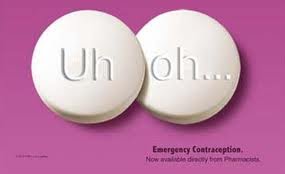When it comes to preventing an unplanned teen pregnancy, the morning after pill is known to be an effective way to help with pregnancy prevention. There are several different types of the morning after pill. Read on to learn more about the morning after pill.
Plan B is one of the most common types of the morning after pill, although there are other brand names. The morning after pill works prevent pregnancy from occurring, not to try and stop an existing pregnancy. Despite many misconceptions, and contraception myths, the morning after pill is not the same pill as the abortion pill.
What is the morning after pill?
- The morning after pill works to halt pregnancy from taking place because it contains high levels of levonorgestrel. This is the same ingredient found in many types of birth control. In the morning after pill, there is a larger dosage of the hormone in comparison to the amount found in birth control. This helps to prevent pregnancy from occurring because it stops the fertilization process of the sperm reaching the egg.
- The morning after pill is more effective the sooner you take it. Most types of the morning after pill work up to three days after a situation where there is contraception failure or unprotected sexual intercourse. The effectiveness of the pill decreases each day following the first day after unprotected sex. This is because the sperm has a higher chance of fertilizing the woman’s egg the closer the incident is to sexual intercourse.
- There is also a new version of the morning after pill called Ella. This version of the morning after pill works up to five days after failed contraception or unprotected sex and is slightly more effective.
- According to some morning after pill statistics about seven out of eight women or teens who take the morning after pill will not become pregnant resulting in about an 87 percent success rate with the morning after pill. This is in comparison to the 99 percent effective rate with most versions of the birth control pill.
- The morning after pill is not meant for routine use of birth control and should not be used as such. The morning after pill should be only used in emergency situations and is not as effective as taking birth control regularly. Because the financial cost of the morning after pill is substantially more than an entire month’s worth of birth control pills, it is also not the best economic choice for regular birth control.
When should you take the morning after pill?
- In the event of situations where contraception failed like if the condom broke or slipped off, or he ejaculated in your vagina. However, the pull out method is not the best or most reliable version of birth control either. Because precum can carry sperm, pregnancy can still occur even with the pull out method. To be on the safe side, the morning after pill is a good option.
- If you forgot to take your regular method of birth control like the pill.
- If you miscalculated your “safe days” during your regular monthly cycle. Many women and teens calculate their days of cycle to know when their body is most open for pregnancy during days of ovulation. Generally abstinence from sex is required during those days. However, it is not the best or most effective method of birth control since a woman’s cycle can change easily with outside influences like exercise, diet and stress.
- If no birth control or contraception was used at all.
- If you were forced to have unprotected vaginal sex.
Who can buy the morning after pill and where can you purchase it?
- Anyone over the age of 17 can purchase the morning after pill over the counter without a prescription.
- However, anyone under the age of 17, must have a doctor’s prescription to purchase the morning after pill.
- The cost of the morning after pill typically ranges from $10 to $70 depending on where you buy it, or if you have a coupon.
- Most drug stores and pharmacies like Walgreens, CVS or local pharmacies carry the morning after pill.
- Many health clinics like Planned Parenthood also carry the morning after pill.
While the morning after pill is not the most reliable method of birth control, it is still a good alternative to unintended or unplanned pregnancy. It is important to take the pill as soon as possible after having the unprotected sex. There are different types of emergency contraception including the morning after pill. It is important to talk to your doctor or pharmacist about how to correctly take the pill to ensure the best protection against pregnancy possible. Remember, the sooner you take the morning after pill, the more effective it will be.
Sources: plannedparenthood.org
